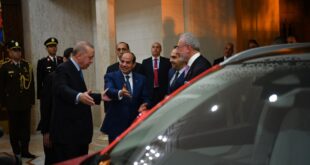Muhamad Yehia
European leaders are struggling to make sense of a seemingly dramatic reset of the relationship between Washington and Moscow. President Trump has been echoing talking points made by President Vladimir Putin of Russia, falsely accusing Ukraine of having provoked Russia’s invasion and casting Russia as the aggrieved party rather than the aggressor. And while Trump may not quit NATO outright, he is already undercutting it.
Yet behind closed doors, Marco Rubio, the U.S. secretary of state, has sought to reassure nervous European allies that talks with Russian negotiators this week did not represent an abrupt departure from U.S. policies as many feared. They were instead meant as a first step in a process of making a deal, he told European diplomats on a recent call.
In Ukraine, citizens still reeling from the war have been perturbed by Trump’s comments. In Bucha, a Ukrainian suburb that was the site of a notorious massacre, residents worried that they had been abandoned. “If America leaves us,” one said, “we are screwed.”
From the war: A senior Ukrainian intelligence official confirmed a plot to blow up drone goggles that was inspired by what Israeli intelligence had pulled off with exploding wireless devices and Hezbollah militants. It was unclear how much effect the scheme had on Russian forces.
 موقع وجه أفريقيا موقع وجه أفريقيا هو موقع مهتم بمتابعة التطورات في القارة الأفريقية
موقع وجه أفريقيا موقع وجه أفريقيا هو موقع مهتم بمتابعة التطورات في القارة الأفريقية



